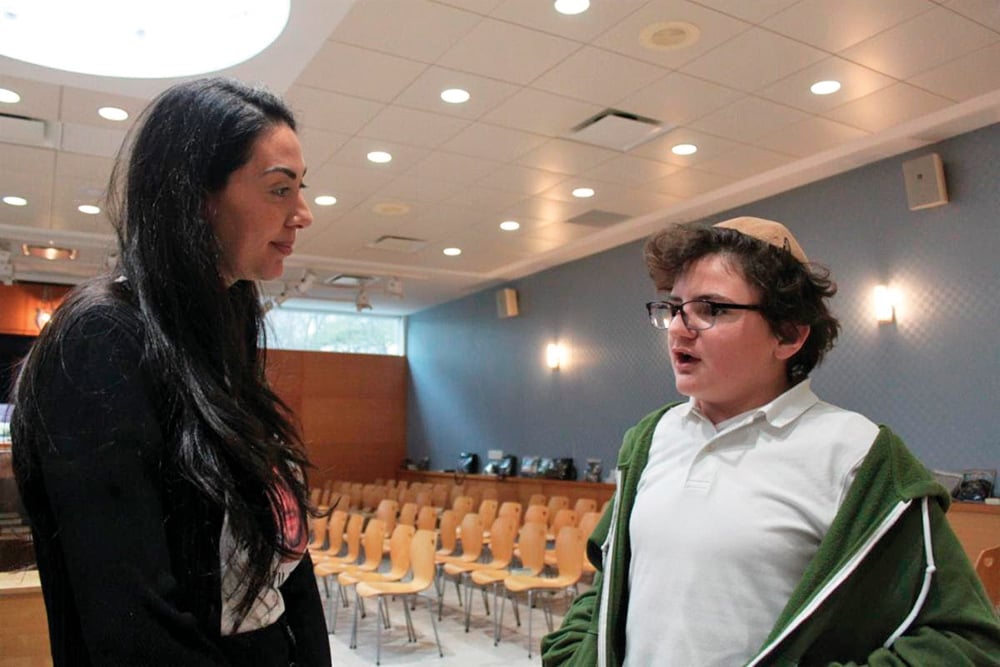
Reviewing: “Repentance for Life” by Rabbi Steven Pruzansky. Kodesh Press. 2021. English. ISBN-13: 978-1947857704.
The matzah that you buy a few weeks before and eat on Pesach is, in fact, prepared many months in advance of the holiday. When it comes to books about Rosh Hashanah, they should similarly be released many months in advance of the holiday to make the most use of them.
Having made aliyah this year, Rosh Hashanah 5782 was the first time Rabbi Steven Pruzansky was not as Congregation Bnai Yeshurun in Teaneck since he was installed there in 1994. Those who attended his Shabbat Shuva drashot from 1994 through 2020 could hear a master orator in action.
In ”Repentance for Life” (Kodesh Press), Pruzansky has compiled 18 of his finest speeches and put them in print. Topics cover numerous aspects of repentance that are written in a contemporary and real way. Perhaps the best time to release a book like this is just after Passover.
As Pruzansky articulately writes, true teshuva is not a trivial task. In our youth, and some of us in our older years, we will go up to a person in the days (and often hours) before Rosh Hashanah and blithely ask, “do you forgive me?” as if forgiveness was such an easy task. In the first two essays, Pruzansky shows the depth of repentance and that it cannot be merrily done.
Moving to Israel has certainly not mellowed the rabbi. In this insightful guide, Pruzansky comes out in full-force intensity. He refers to what he calls the “troubling phenomenon in the modern world that our older children grow up and do not sit next to their parents in shul.” While that may not seem like such a pressing problem, he writes that it is indicative of more significant issues. In chapter after chapter, he highlights numerous areas, character traits, societal issues and more, that need to be worked on.
In many of the essays, all of them profound, he asks 15-20 penetrating questions that cut to the core of what repentance is all about. As he plumbs through the depth of what real teshuva means, one should consider the saying of Rabbi Yisroel Salanter, who observed that it is easier to learn the entire Talmud than change a single character trait. The book drives that point home as it details the myriad challenges in making real change last.
Pruzansky has almost 400 lectures on YU Torah, many of them on history, Halacha, the intersection of Jewish law and American law, and more. In the book, he shows the depth and breadth of his scholarship, quoting myriad sources in each chapter and bringing them together to weave some beautiful insights.
Each of the 18 chapters are gems, but I found chapter 11 on Repentance and Avodah Lishmah (Divine service for its own sake) to be particularly insightful. He details the many aspects, sometimes seemingly contradictory, about what doing something for its own sake means. He raises 19 questions on the topic and answers all of them with great insight.
As to the notion of lishmah, he notes that a crucial starting point to understand the topic is to realize the contrast between lishmah and lo lishmah (not for its own sake). Moreover, while lishmah has only one meaning and application, the realm of lo lishmah is varied, complex, and has six different levels.
This is a deep and broad book. At nearly 600 pages, there is a lot to digest here. Given that 5782 is a leap year, Rosh Hashanah 2022 will not be until a year from now. As Rosh Hashanah is meant to transform us, ”Repentance for Life” will help make that journey much easier and much more real. And it is a remarkable book to start reading now.
Ben Rothke lives in New Jersey and works in the information security field. He reviews books on religion, technology and science. @benrothke













